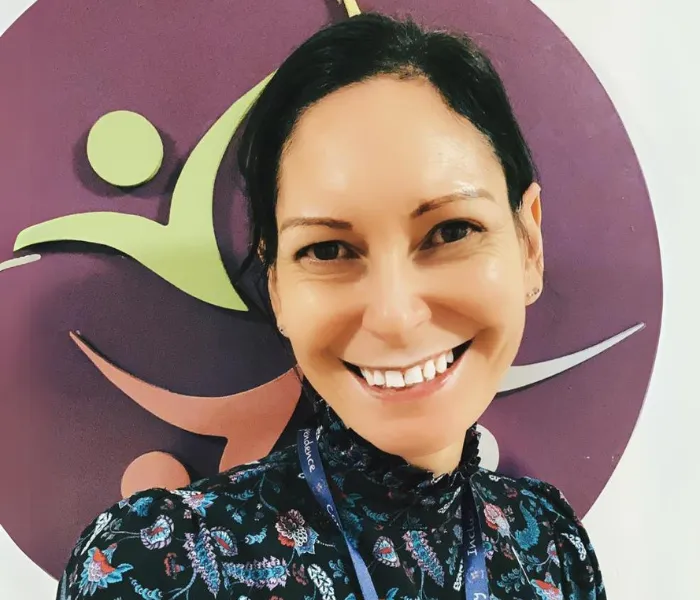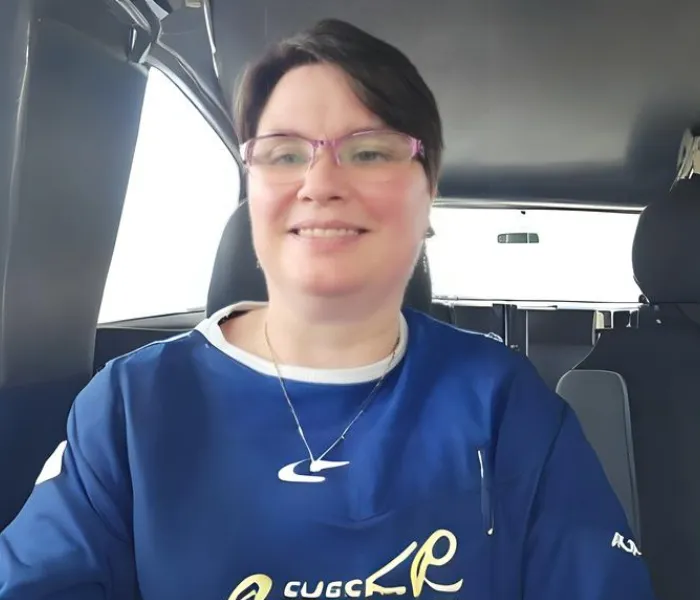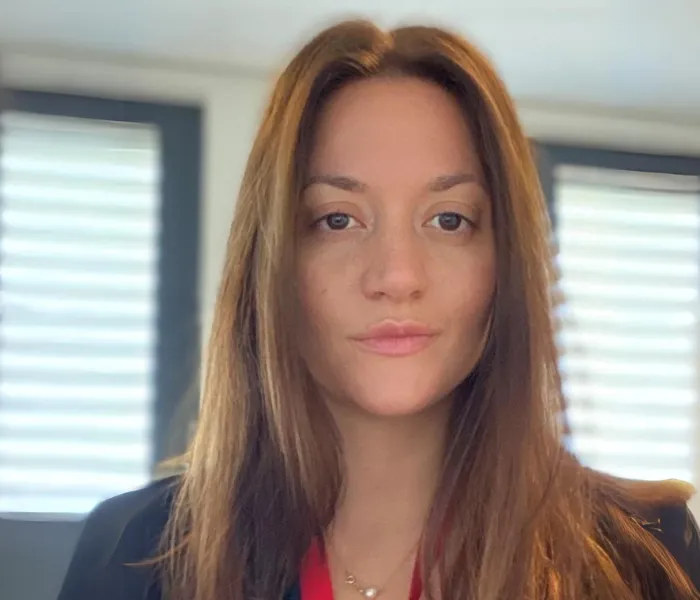Darleen Grimsby – MEd SEND and Inclusion | NASENCO
Darleen Grimsby is currently Deputy Head of a complex special needs school in Norfolk. Recently she has been promoted to a SENCO position with responsibilities across the entire Trust, something she believes her master’s degree played a pivotal role in helping her achieve.
We caught up with her to see how her students (and her career) have benefited from the Masters in SEND programme.
How has your setting benefitted from your new skills and knowledge?
I would say the biggest impact was the reading model that I created and rolled out during my course of study which was one of my assignments on the Dyslexia Leadership and Intervention course. As a direct result of that piece of work, we now have 90% of pupils who are able to access some sort of reading and most of them can be assessed as well. When you consider that this includes children with profound and multiple learning difficulties or complex physical disabilities this is particularly significant for them and for how we support them in our school.
When OFSTED last came to inspect us they were very complimentary and commented that everything that had been done was very well researched. This is all down to my master’s study. I’ve also helped bring other members of my team along with me. It’s not just me building my career,, but it’s supporting those around me to be the best that they can be as well.
My research project focused on supporting the emotional regulation of non-verbal children with autism. It’s not only helped me better understand the importance of a holistic approach – but Norfolk County Council are treating it as a pilot study and are now rolling it out on a much larger scale. When we get the results it will feedback into our plan next term and will hopefully help other schools and parents in the county.
What did you enjoy most about studying for your master’s?
The master’s programme helped me become a specialist in my field and as a professional carve out what it is that I want to do. It has allowed me to gain the necessary breadth of understanding about special educational needs (and keep my fingers in lots of pies!), while also doing closer study on reading and providing mental health support for non-verbal autistic children.
It’s also given me the encouragement to go and do what I want to do and investigate what I am truly passionate about.
How do you think studying for your master’s has helped with your own personal development?
A lot of what I’ve done here at my current setting has been influenced by what I’ve done through my masters with Real Training. I’ve done a lot of research as part of my study programme and put new things in place and I think that definitely contributed towards my career progression.
In recent job interviews when people have asked me what type of leader I see myself as, because I’ve done my SENCO training and had time to reflect, I’m pretty clear on that.
The masters has also opened so many doors for me on a personal level. My reading model was used as a case study in published in a book by Dr. Sarah Mosley, I’ve just written an article for a magazine and I’ve been asked to put forward a book proposal.
What did you select for your enquiry-based research project?
I chose to focus on mental health support for non-speaking autistic individuals aged between four and 16 years old. It’s something I’m very passionate about and we’re also seeing a huge rise in the number of children coming into our setting who are non-speaking. Managing their anxiety can be quite a challenge.
I found that access to a well-known adult and a feeling of trust was an essential component for emotional self-regulation. Getting this in place meant that the child felt that their communication needs were being addressed (sometimes even through non-verbal communication such as glances) and their broader needs would also then be met. This helped to reduce anxiety, as well as further re-enforcing that trusting relationship.
There were lots of strategies that both parents and professionals reported to be effective but the presence of a familiar/ known and predictable adult who honored and followed through with what they communicated was a common thread in a holistic approach.
[You can read more about Darleen’s project here]
What are the top three things you have implemented since or during your study?
- Launched a new reading model that 90% of children can access
- Implemented strategies to help reduce anxiety in autistic children and promote communication-rich environments including using graded core boards
- Started work to introduce guidance to help children access self-regulation techniques – we’re calling it the ‘pre-zones of regulation’ and I’m working closely with our behavioural specialist
How did you find our online learning experience and tutor support?
Online learning for me really worked because I could pick it up whenever and there was no pressure, which really helped. There wasn’t the need to attend classes. Everything being online gave me the freedom to juggle work and childcare, so that completely worked for me.
I found that as I went along I got even more comfortable finding my way around and interacting with peers. The tutors were always there and it was always a really good experience – they answered things straight away.
Would you recommend this programme to others?
Yes! If you are passionate and have that drive then I think it is an amazing platform. This is really cheesy and I can’t believe I’m saying it, but it’s like the world becomes your oyster.
Learning with Real Training has had such a huge impact because it’s opened up so many doors for me that I really didn’t think would be there. I’ve also been able to bring other staff along with me – that’s really important.
Patricia Henderson – AAC
Patricia has completed several Real Training courses, most recently our Access Arrangements Course qualification. Prior to this, she has also completed; General Learning Difficulties (Skills & Knowledge and Application & Reflection), Dyslexia: Leadership & Intervention and the Certificate of Competence in Educational Testing online.
Based in Malaysia, Patricia works at a secondary international school as a Learning Support Teacher. Talking about her focus area, Patricia said, “I have an interest in all SEND and ways for students with learning differences to be included in the whole school curriculum.”
We wanted to catch up with Patricia and talk about her time studying with us.
What made you choose Real Training’s courses over other options?
I was looking to work towards my Masters in SEND and I found Real Training in a google search. I liked the range of different topics it covered, and that it was your choice to choose which topics suited you, your professional development or what you were interested in.
I also liked the fact that it was done at your own pace at times that suited you and didn’t have set deadlines etc. Once I had done one course I was hooked and knew I would see my way through to the completion of my Masters in Education (MEd) with SEND with Real Training.
What was your experience of learning with Real Training?
Each course definitely met, if not exceeded, my expectations. I enjoyed and learned something from every single one. I found Campus Online was really easy to use and made it easy to contact people. It was equally easy to get help when I did encounter any issues. I would also praise all of the tutors I have had for being both accessible and helpful.
How has the course helped make an impact at school?
I have gained a lot more confidence in dealing with data and how it can support students with SEND. This has also allowed me to direct more useful interventions and supports for these students. I have improved my knowledge to such a degree that my work was used as a case study in the Global Assessment Conference 2020 with Matthew Savage, which then led to me writing a blog for GL Assessment.
This was followed by GL Assessment asking me to be part of a panel about wellbeing for FOBISIA.
All of these things have increased my confidence and have allowed me to share what I have learned with others. Clearly displaying the benefits to the school and how my skills are used to support our students and parents.
How has the course helped develop you as an educational professional and what do you hope to achieve with the new knowledge/skills in the future?
Using what I have learned, I am able to look deeper into data, testing and what tests to use for specific learning differences. I am now qualified to complete testing within our school, as well as looking at necessary access arrangements and interventions as a result of those tests.
Both additions to my skill set will help students and parents going forward from both an in-class educational aspect and for exams and access arrangements in their later exam years. I hope to continue to look at different types of learning differences and how I can best support our students to achieve their best potential.
Maria Pantoulia – Dyslexia: Leadership & Intervention
Maria Pantoulia works at an international secondary school in Luxembourg where they study the British curriculum. Her daily role at school is Academic Support Assistant. When asked whether or not she has any special interests in SEND, Maria highlighted Dyslexia and concentration difficulties. Hence her decision to study our Dyslexia: Leadership & Intervention, Skills & Knowledge module.
Below, Maria explains how she found her time studying with Real Training.
What made you choose Real Training courses over other options?
The choice to study with Real Training came from a recommendation by the school SENCO, where I currently work.
What was your experience of learning with Real Training?
I loved the learning experience and particularly the fact that I could adjust studying to my personal needs and time. The flexibility of the course together with the support from the course leader and tutor made this experience valuable and stress-free at the same time.
How has the course helped make an impact at school?
Through the Dyslexia: Leadership & Intervention course, I have learned how to design a professional presentation on dyslexia for training purposes. That experience has allowed me to train the rest of my team and also to prepare some whole staff training for September. Moreover, I have suggested a new template for the student profiles which again I have learned to design through my time studying with Real Training.
How has the course helped develop you as an educational professional and what do you hope to achieve with the new knowledge/skills in the future?
The course has helped me to understand better dyslexia learners’ needs and find the appropriate interventions for each case. I now feel more confident about how to support students with their learning. I am hoping for this course to be the beginning of my future career as an SEN teacher or SENCO.
Sarah Johnson-Motyl – NASENCO, CCET, Enquiry-Based SEN Practice, Dyslexia – Leadership & Intervention
Sarah Johnson-Motyl has studied a lot of courses with us at Real Training!
Read on to find out more about her experience with us.
Why did you decide to study with us?
I discovered the Real Training courses when I was searching for an online course that could be flexible around my work and home commitments.
When I started on my journey with Real Training I aspired to achieve the courses which could be combined to achieve a Masters qualification.
At that time I was a single parent with 3 year old twins and a 5 year old, a full time job as a SENCO and so could not be away from home for childcare reasons. This ruled out most courses as weekend commitments were a pre-requisite which I was unable to do. Real Training allowed me to study at the times that suited me (evenings and early mornings) and having an online tutor meant I had flexibility to plan the tutorials and assessment work. I really liked the way the course was structured and it was easy to follow the pathway the from beginning through to final submission.
The admin team and help desk always responded swiftly to any queries and so although the course used a remote model of studying, I never felt at a loss or unsupported. I liked the virtual community and the fact that we could all join groups and discussion threads from wherever we were in the world. This breadth of experience added the experience of being part of a group and we supported each other through this means.
What was your experience of learning with Real Training?
I have studied several courses and I have had a consistent experience with all my Real Training tutors – all have been utterly fabulous. I can honestly say they have been available at short notice for my questions (no matter how small!) and when I have needed additional flexibility to complete coursework they have been 100% supportive.
I like the fact that we are respected as professionals and there is an understanding that juggling family, study, work and of course ‘life’ means that sometimes more flexibility is needed. The encouragement of tutors spurs on any lagging motivation and the online system gives more support than any other course I have done, including face to face courses.
How has the course(s) helped make an impact at school?
I completed the NASENCO course and was able to apply this to both KS1 and KS2 cohorts. By achieving the assessor qualification, I complemented my practice as a SENCO to deepen understanding of complex needs as well as train staff to further enhance their own CPD within SEN. As an experienced SENCO, I mentored international students on their SEND doctorate and MA courses from Exeter University, as well as participated in their research into Lesson Study.
Sarah’s headteacher:
‘Sarah created a whole school assessment plan which meant we identified and addressed SEN at the earliest opportunity. She has driven effective interventions for pupils with both specific learning difficulties as well improving outcomes for these pupils. Her ability to scrutinise assessment data assimilate test scores into necessary individualised programmes of study means nobody slips through the net.’
How has the course(s) helped develop you as an educational professional and what do you hope to achieve with the new knowledge/skills in the future?
I am looking forward to achieving my Masters qualification and also my National Professional Qualification in Senior Leadership. I love studying and am keen to further progress my practise next year.
Not sure which course I will enrol onto next…the world is your oyster with the Real Training programmes!




